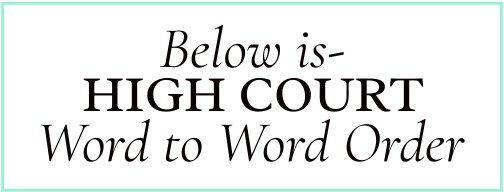Full News

Court rules on tax exemption claims of Assam industries amid GST transition.
Court rules on tax exemption claims of Assam industries amid GST transition.
This case involves three writ petitions filed by industrial units in Assam seeking tax exemptions under the Industrial Policy of Assam 2008 and the Assam Industries (Tax Exemption) Scheme, 2009. The court addressed whether the state government could withdraw promised tax benefits after the introduction of the GST regime. The court ultimately ruled against the petitioners, stating that the government was not bound to continue the exemptions due to changes in tax law.
Case Name:
M/s Lalit Poly Weave LLP & Ors. vs. State of Assam & Ors. (High Court of Gauhati)
W.P(C) No. 2068/2021
Date: 29th April 2025
Key Takeaways:
- The court emphasized the principle of promissory estoppel, stating that the government can change its promises based on public policy and legislative changes.
- The ruling clarified that tax exemptions promised under previous policies do not automatically carry over into new tax regimes like GST.
- The court found that the government’s withdrawal of the extension of tax benefits was justified due to financial constraints and public interest.
Issue:
Can the Assam government withdraw tax exemptions promised under earlier policies after the introduction of the GST regime?
Facts:
1 - Parties Involved:
- Petitioners: M/s Lalit Poly Weave LLP, M/s Eco Tech Papers, and M/s Ramdhenu.
- Respondents: State of Assam and its Finance Department.
2 - Background:
- The petitioners established their manufacturing units based on incentives from the Industrial Policy of Assam 2008 and the Assam Industries (Tax Exemption) Scheme, 2009.
- They were promised VAT exemptions for seven years from the start of commercial production.
- The introduction of the GST regime in July 2017 changed the tax landscape, leading to the withdrawal of certain benefits.
3 - Timeline
- Commercial production for the petitioners began between 2013 and 2014.
- The eligibility certificates for tax exemptions were issued, but the benefits were curtailed after the GST was implemented.
Arguments:
- Petitioners’ Arguments:
- They argued that the government’s withdrawal of tax benefits violated the doctrine of promissory estoppel, as they had relied on the promises made when investing in their businesses.
- They claimed discrimination, as other industries received extensions while their applications were ignored.
- Respondents’ Arguments:
- The government contended that the changes in tax policy were necessary for public interest and financial stability.
- They argued that the petitioners had already availed the benefits during the VAT regime and that the new GST laws did not allow for the continuation of the previous exemptions.
Key Legal Precedents:
- Promissory Estoppel: The court referenced the principle that the government is not bound by its earlier promises if public policy necessitates a change. This was supported by the case of Motilal Padampat Sugar Mills Co. Ltd. Vs. State of Uttar Pradesh (1979) 2 SCC 409, which established that the government can withdraw concessions if it does not violate the rule of promissory estoppel.
- Legislative Changes: The court noted that changes in tax law, such as the introduction of GST, can justify the withdrawal of previously promised benefits, as seen in various precedents.
Judgment:
The court ruled in favor of the respondents (the State of Assam), stating that:
- The government was not legally bound to continue the tax exemptions under the new GST regime.
- The withdrawal of the extension of benefits was justified based on public interest and financial constraints.
- The petitioners had already enjoyed the benefits during the VAT regime, and the government’s actions did not violate the principles of promissory estoppel or Article 14 of the Constitution.
FAQs:
1 - What does this ruling mean for the petitioners?
- The petitioners will not receive the extended tax benefits they sought, as the court upheld the government’s decision to withdraw these benefits under the new tax regime.
2 - Can the government change tax policies?
- Yes, the government can change tax policies and withdraw benefits if it is justified by public interest and financial necessity.
3 - What is the doctrine of promissory estoppel?
- It is a legal principle that prevents a party from withdrawing a promise made to another party if the latter has relied on that promise to their detriment. However, this can be overridden by public policy considerations.
4 - How does this case impact future tax exemption claims?
- This case sets a precedent that tax exemptions promised under previous policies may not be enforceable if the tax regime changes, emphasizing the government’s flexibility in fiscal policy.
5 - What should businesses consider when investing based on government incentives?
- Businesses should be aware that government incentives can change, and reliance on such incentives should be carefully evaluated against potential future policy shifts.





